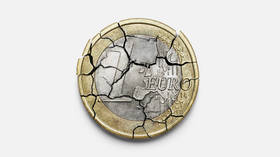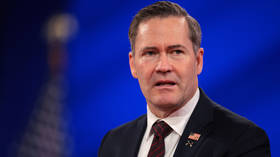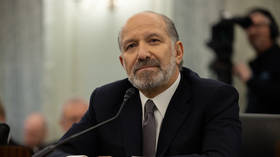EU’s new plan won’t save Eurozone – media

The new bond reinvestment plan introduced by the European Central Bank (ECB) earlier this week to help indebted EU states is unlikely to work, Reuters and Bloomberg report, citing analysts.
The ECB came up with the plan to help the EU’s southern members, the bloc’s most indebted, with mounting obligations. The regulator said it would direct cash to more indebted nations from debt maturing in the €1.7 trillion ($1.8 trillion) pandemic support scheme. This means that while prior to the announcement the process of buying ECB bonds by states took place in accordance with each individual country’s investment, preference would now be given to countries with high debt, such as Italy, with its gross borrowings amounting to around 150% of GDP.
However, experts say the move is unlikely to solve the debt crises. Olli Rehn, Finland’s Central Bank chief, told Reuters that the measure will merely help prevent “unwarranted” market moves and will not help countries in case of truly large issues.
Markus Ferber, a German member of the European Parliament, noted that the ECB might be stretching its area of expertise too far.
“The ECB’s job is to deliver on price stability, not to ensure favorable financing conditions… Some countries now simply get the bill for years of irresponsible fiscal policies,” he told the news outlet.
According to financial analyst Richard Cookson, while the main goal of a central bank is to keep inflation low, the European regulator seems to have a different target – keeping the weakest EU members “from leaving the currency union.”
“The ECB has now put itself in an impossible position… For the past 10 years, rather than targeting inflation, monetary policy has been set with a view to keeping its weakest members from leaving the currency union. Bluntly, it is no longer an inflation-targeting central bank,” Cookson wrote in an article in Bloomberg.
Offering the soaring inflation in most EU states as an example of the ECB’s failed policies, he said that even the recently announced key rate hike of 0.25%, its first such move in 11 years, would hardly change the situation.
“The ECB could disguise its true intentions when inflation was low but when inflation is high and rising, disguising its true aims becomes impossible… the ECB can’t target inflation and keep spreads of weaker peripheral borrowers, such as Italy, low,” he said, adding that while it may be risky to target inflation with rate hikes, “trying to subsidize weaker borrowers is an even worse policy.
“The ECB should have nothing to do with it… Ultimately, it should not be for the ECB to decide who is and isn’t in the euro,” he stated, stressing that this year “is likely to be a make-or-break year for the euro.”
For more stories on economy & finance visit RT's business section















